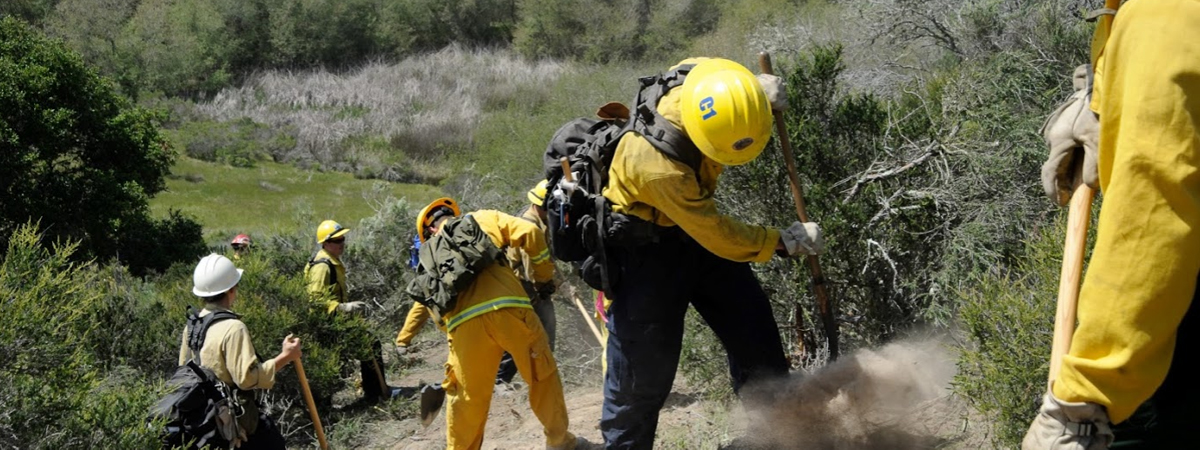Train for a Career in Wildland Firefighting
Wildfires are a growing threat to communities, agriculture, and the environment—especially in California, where they cause significant damage each year. Skilled fire professionals are needed now more than ever.
Allan Hancock College’s Wildland Fire Technology Program equips you with the knowledge and skills for a successful fire service career—whether you’re starting out or advancing. Learn to analyze and combat wildfires, understand fire behavior, and build teamwork, leadership, and fitness skills—all through flexible online courses.
Career paths include:
- Municipal or wildland firefighter
- U.S. Forest Service or state forestry departments
- Seasonal firefighter and hand crew positions
Program highlights:
- Master fire behavior and emergency response fundamentals
- Improve physical and mental readiness
- Develop leadership, communication, and accountability
- Understand federal and state fire regulations
- Gain exposure to incident management roles in planning, logistics, and finance
Join a program that values teamwork, discipline, and service.
Train with Hancock. Protect communities. Start your fire career today.
Certificates Offered
Each program has unique requirements. The order in which you take courses may affect your completion time. Visit the links below to view the program requirements and a general semester-by-semester course schedule.
Associate in Science- Wildland Fire Technology
Certificate of Achievement- Wildland Fire Technology
To view all available degrees and certificates visit the Allan Hancock College course catalog.
Programs you may also be interested in exploring...
Contact Information
John Ceceña
Fire Technology Faculty john.cecena@hancockcollege.edu
805-735-3366 ext. 5246
Tiffany Alexander
tiffany.alexander@hancockcollege.edu
805-735-3366 ext. 3282
Accreditation Information
Allan Hancock College is an Accredited Regional Training Program (ARTP), and the Fire Academy is part of the California State Fire Marshal’s accreditation. Since 1972, we have taught Firefighter-1 classes through our 609-hour certified Fire Academy program.
The Firefighter 1 Academy is a California State Fire Marshal-certified academy that meets all the requirements in National Fire Protection Association (NFPA) 1001 for entry-level firefighters. Our academy is the foundation for a career in the fire service. The Certification Training Standards for Firefighter 1 are followed and signed off on as you complete each block of instruction. Certification exams require a passing score of at least 80 percent, and manipulative exams require a score of 100 percent.


